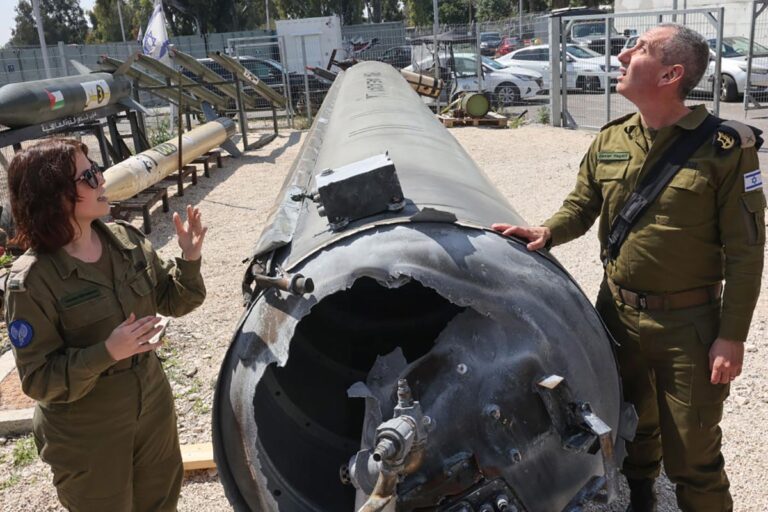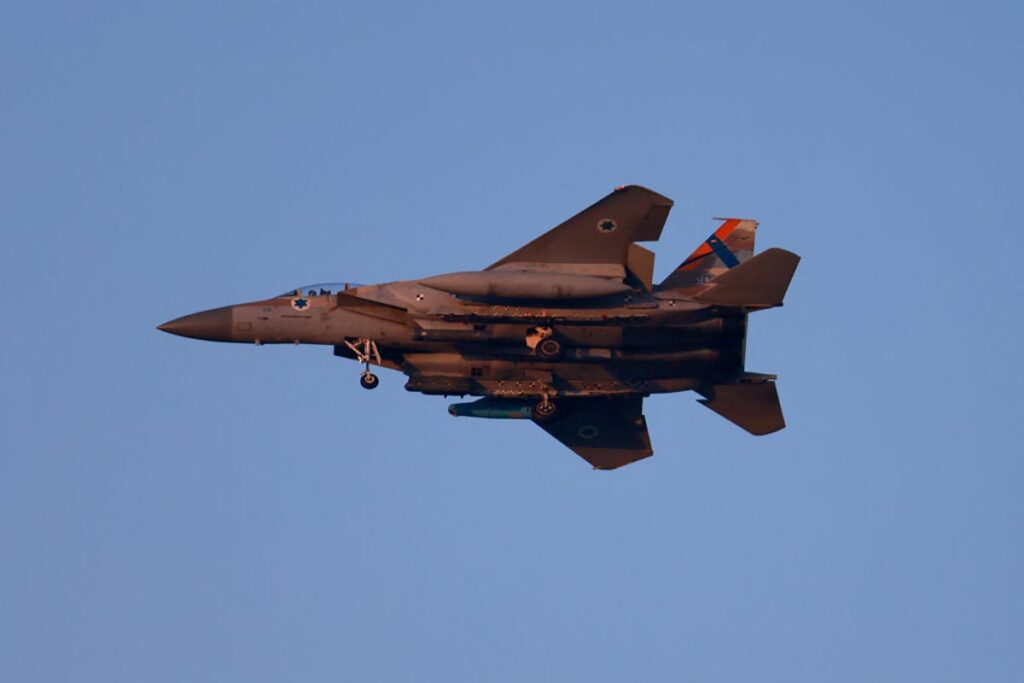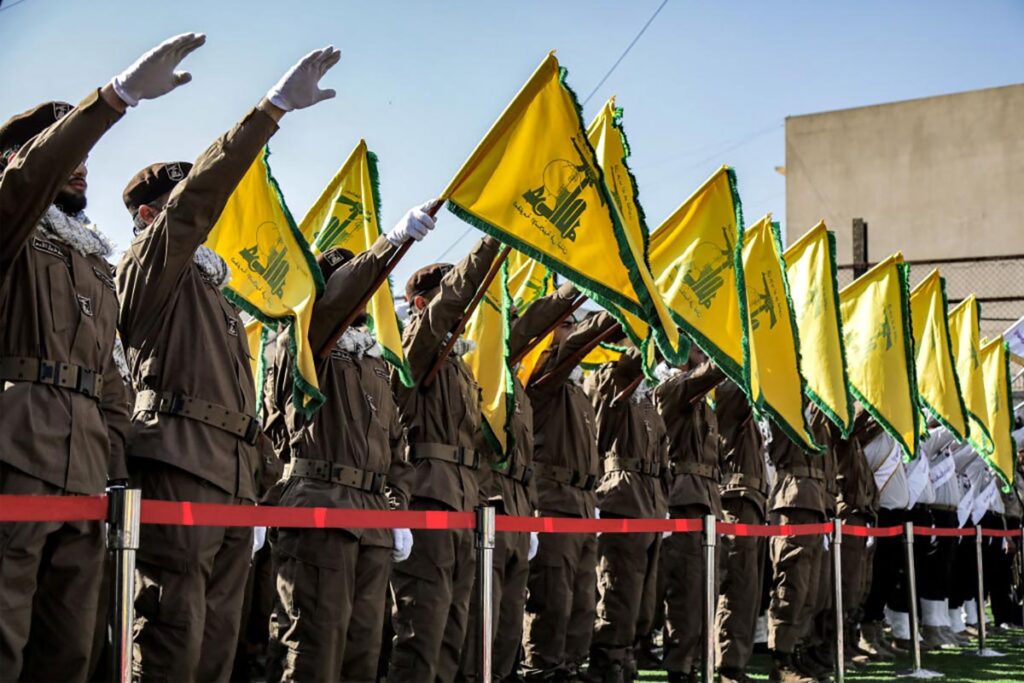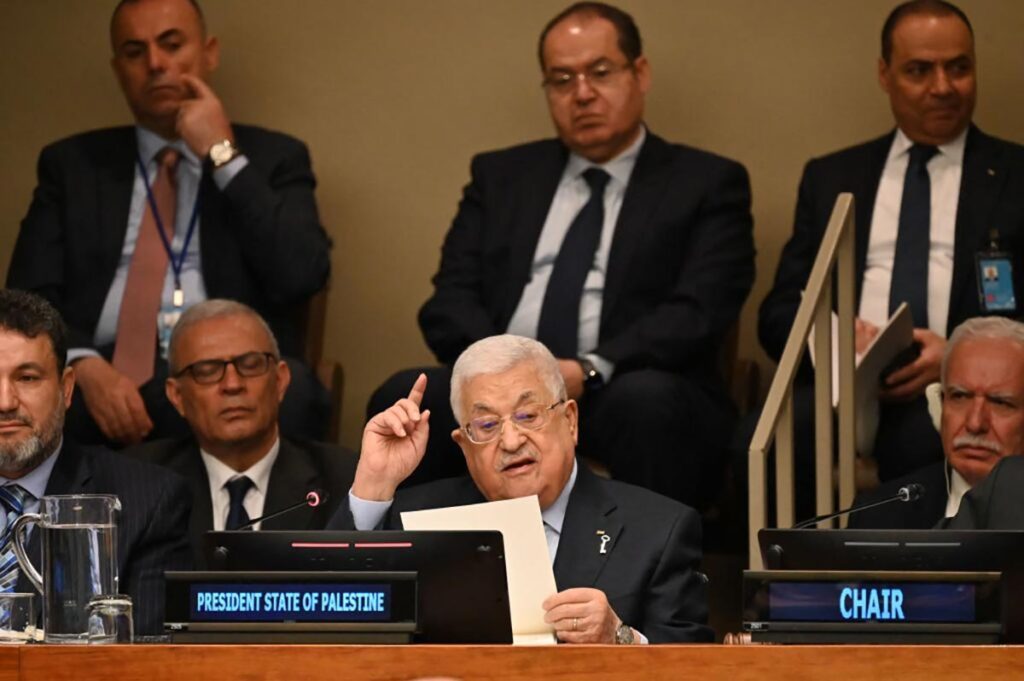
The war between Hamas and Israel has now surpassed 195 days. Here are the key developments from this past week.
1. Israel strikes Iran in response to Iranian attacks

Israel reportedly struck an Iranian air force facility near Isfahan in central Iran on Friday morning, just a few days after Iran launched over 300 drones and missiles toward Israel.
ویدیویی که یکی از مخاطبان بیبیسی در ساعت ۴:۴۷ بامداد در شرق اصفهان ثبت کرده است، فعال شدن پدافند و صدای انفجار را نشان میدهد. این مخاطب میگوید گلولههای پدافند «از سمت اتوبان آقابابایی و پایگاه هشتم شکاری» دیده میشدند.
— BBC NEWS فارسی (@bbcpersian) April 19, 2024
بزرگراه آقابابایی در شمال شرق حاشیه شهر #اصفهان و از… pic.twitter.com/d1C6tsl7zp
The strike was reportedly carried out by Israeli fighter jets that fired missiles from outside Iran toward the targeted site. Israel has not officially taken responsibility for the strike.
Iran launched its attack last Saturday in response to an airstrike blamed on Israel which targeted the Iranian consulate in Damascus earlier this month.
A combined effort by the IDF, along with forces from the U.S., the U.K., Jordan, and France, managed to intercept 99% of the drones and missiles launched by Iran on Saturday.
Why it matters: Israel and Iran have been fighting for years, but the conflict has mostly stayed in the shadows with neither country openly directly attacking the other.
The attack on Saturday night marked a new escalation, sparking fears that the conflict could expand into a regional war.
Israel’s response on Friday seemed to have been limited enough to prevent a further escalation, since Iranian officials downplayed the strike as “small” and didn’t threaten a response.
2. 18 people injured in Hezbollah drone attack

Fourteen IDF soldiers and four civilians were injured in a drone and missile attack launched by Hezbollah in the northern town of Arab al-Aramshe on Wednesday.
The drone hit a community center in the Bedouin village.
The head of the Bedouin village, Adiv Zaev, said that none of the residents had received any financial aid since being evacuated three months ago and many had decided to return to the village.
Following the attack, IDF forces struck deep in Lebanon in the Beqaa Valley region, targeting a site used for Hezbollah’s air defense array.
Digging deeper: Clashes between Israel and Hezbollah have continued to escalate in recent weeks.
The attack on Wednesday came just a day after three other Israelis were injured by another Hezbollah drone attack. A few days before that, a man was seriously injured by a Hezbollah drone in Hanita in northern Israel.
The recent direct confrontation between Israel and Iran has sparked fears that Iran’s proxy Hezbollah could fully join the conflict, potentially opening another front in the war.
3. Rafah operation moves forward, U.S. opposed

Israel has made “significant progress” in preparing for an invasion of Rafah, U.S. media reported on Thursday, as the U.S. continued to express opposition to such a plan.
As part of efforts to evacuate the around 1 million civilians in Rafah, Israel has been repairing infrastructure in Gaza and purchasing thousands of tents.
While some reports early in the week claimed that the U.S. had approved the Rafah operation in exchange for Israel not carrying out retaliatory strikes against Iran, U.S. officials denied those reports later in the week.
U.S. Secretary of State Antony Blinken expressed public opposition to a large-scale operation in Rafah on Friday, saying the U.S. believes Israel can achieve its goals without such an operation.
On Thursday, White House National Security Advisor Jake Sullivan spoke with Israeli officials about plans for Rafah, with the White House saying the U.S. “expressed concerns” about the proposed plans and that Israel had agreed to consider these concerns.
Digging deeper: World leaders have repeatedly warned that a full-scale invasion of Rafah could worsen the already grave humanitarian crisis in Gaza. Israeli officials maintain that a major offensive in Rafah is necessary to defeat Hamas, which still has four battalions in the area.
In an effort to mitigate the humanitarian impact, Israel is facilitating more aid delivery into Gaza and repairing infrastructure in northern and central Gaza. Israel also plans to evacuate the civilians in the city before any invasion.
On Monday, the IDF announced it was calling up two reserve brigades to reinforce troops in Gaza. Some Israeli analysts theorized that the call-up was partially in preparation for an operation in Rafah.
4. U.S. Congress declares “from the river to the sea” chant antisemitic

The U.S. House of Representatives passed a resolution declaring the slogan “from the river to the sea, Palestine will be free” to be antisemitic on Tuesday.
Forty-four representatives voted against the bill, including Democratic representatives Rashida Tlaib and Cori Bush and Republican representative Thomas Massie.
The resolution was part of a bipartisan initiative led by Democratic representatives Josh Gottheimer and Jared Moskowitz and Republican representative Anthony D’Esposito.
Digging deeper: “From the river to the sea, Palestine will be free” is one of the most common chants heard at pro-Palestine protests today.
Opponents of the slogan argue that it calls for the complete destruction of the State of Israel as it refers to “freeing” all the territory between the Jordan River and the Mediterranean Sea, which is where Israel is.
Some pro-Palestinian activists including U.S. House Rep. Rashida Tlaib argue that the slogan isn’t actually calling for the destruction of Israel and instead is simply calling for equal rights for everyone.
For a deeper dive, watch our video.
5. U.N. rejects request to recognize Palestinian Authority as a state

On Thursday, the U.S. vetoed a U.N. Security Council resolution that would have recommended that the Palestinian Authority be recognized as a full member state of the U.N.
The U.S. has consistently opposed the U.N. unilaterally recognizing the Palestinian Authority as a full member, emphasizing that the status of statehood should be achieved in negotiations between Israel and the Palestinians.
Israel welcomed the veto, saying that approving the request would have been a “reward” for the Oct. 7 massacre. Conversely, the Palestinian Authority condemned the veto, stating it contradicted the views of the majority of the international community.
Why it matters: The Palestinian request comes as world leaders say they’re considering unilaterally recognizing an independent Palestinian state, without an agreement between Israel and the Palestinians.
Additionally, the Wall Street Journal reported on Thursday that the U.S. was pushing Israel to accept Palestinian statehood as part of a deal to normalize relations with Saudi Arabia.
Originally Published Apr 19, 2024 07:15PM EDT
